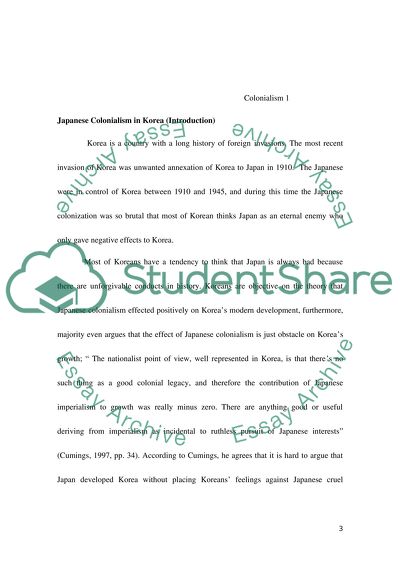Cite this document
(The Effects of Japanese Colonialism to Korea Term Paper, n.d.)
The Effects of Japanese Colonialism to Korea Term Paper. https://studentshare.org/history/1517787-the-effects-of-japanese-colonialism-to-korea
The Effects of Japanese Colonialism to Korea Term Paper. https://studentshare.org/history/1517787-the-effects-of-japanese-colonialism-to-korea
(The Effects of Japanese Colonialism to Korea Term Paper)
The Effects of Japanese Colonialism to Korea Term Paper. https://studentshare.org/history/1517787-the-effects-of-japanese-colonialism-to-korea.
The Effects of Japanese Colonialism to Korea Term Paper. https://studentshare.org/history/1517787-the-effects-of-japanese-colonialism-to-korea.
“The Effects of Japanese Colonialism to Korea Term Paper”. https://studentshare.org/history/1517787-the-effects-of-japanese-colonialism-to-korea.


